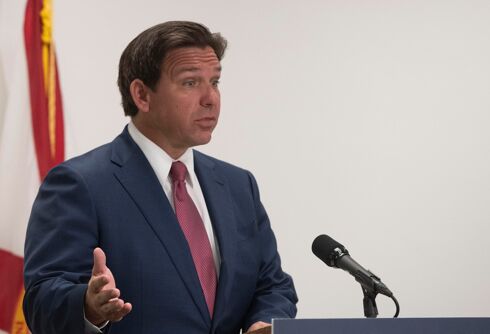
As the Supreme Court prepares to decide a key case involving the constitutionality of states’ same-sex marriage bans, public support for allowing gays and lesbians to marry legally continues its rapid rise: A 57 percent majority of Americans now favor allowing same-sex marriage, and 39 percent oppose, according to a new national survey by Pew Research Center.
This is the highest level of support measured for same-sex marriage in nearly 20 years of Pew Research Center polling of the issue. As recently as five years ago, more opposed (48 percent) same-sex marriage than supported it (42 percent).
Yet even as support for same-sex marriage has increased among nearly all segments in the public, some groups remain broadly opposed to same-sex marriage. (See detailed demographic breakdowns and long-term trends on same-sex marriage.)
The survey, conducted May 12-18 among 2,002 adults, finds partisans are as divided as ever on this issue: Today, 65 percent of Democrats and an identical percentage of independents favor gay marriage; only about a third (34 percent) of Republicans do so.
Growing shares of all three groups support same-sex marriage, yet the differences between Democrats and Republicans are as wide today as they were a decade ago.
Article continues below

[ Previous ]
Among the survey’s key findings:
Strong support for gay rights among younger Americans. Younger generations have long been more accepting of homosexuality and of same-sex marriage than older generations, and as Millennials have entered adulthood, those views have influenced overall public opinion. Nearly three-quarters (73%) of Millennials currently favor legal recognition, with fully 45% saying they strongly favor it. A more modest majority (59%) of Gen Xers also support same-sex marriage, while Baby Boomers’ opinions are divided (45% favor, 48% oppose); among those in the Silent Generation, just 39% favor same-sex marriage, while 53% oppose.
White evangelical Protestants stand out for deep opposition to same-sex marriage. Just 27% favor allowing gays and lesbians to marry, while 70% oppose it (43% strongly oppose); by contrast, majorities of both Catholics (56%) and white mainline Protestants (62%) support same-sex marriage, along with an overwhelming majority (85%) of the religiously unaffiliated.
More support for same-sex marriage among those with many gay acquaintances. Nearly nine-in-ten Americans (88%) know someone who is gay or lesbian, with 28% saying they know “a lot” of gays or lesbians. About three-quarters (73%) of those who say they personally know a lot of gays and lesbians favor same-sex marriage. A majority (59%) of those who know no gays or lesbians oppose same-sex marriage.
Partisans rate their parties. Most Republicans and Republican leaners (57%) say their party is not doing a good job of representing their views on same-sex marriage, and the party draws criticism from those on both sides of the issue. By contrast, 62% of Democrats and Democratic leaners say their party is doing a good job of representing their views. Democratic supporters of same-sex marriage rate their party much more positively than do Democratic opponents.
Article continues below
More say people are ‘born gay.’ Nearly half of the public (47%) says that people are born gay or lesbian, while 40% think being gay is a way people choose to live; 7% say it is a result of someone’s upbringing. The share saying people are born gay has increased six points since 2013.
Detailed tables: Demographic breakdowns of attitudes about same-sex marriage.
Interactive timeline: Changing attitudes on same-sex marriage over time.













